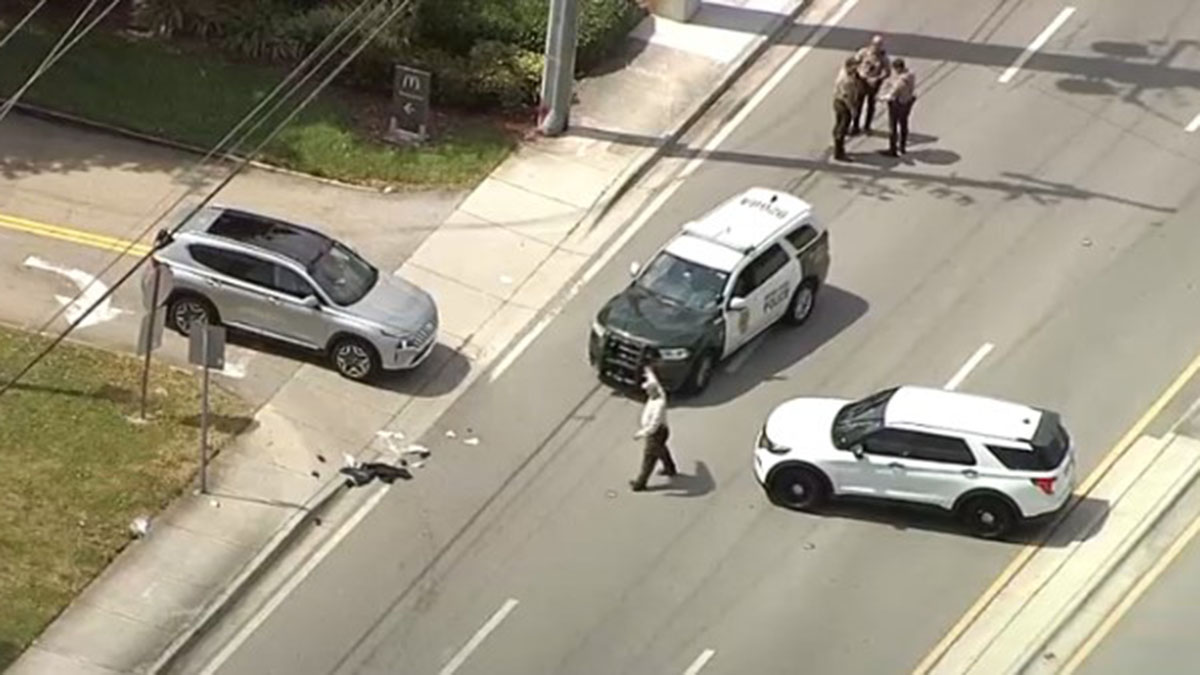Attorneys for a Florida sheriff asked a federal judge on Monday to dismiss a $23 million jury award to a black man who was unarmed when he was shot and paralyzed by a deputy, saying race played a "subtle" role in the award.
Palm Beach County Sheriff's Office attorneys argued that Dontrell Stephens' attorneys linked his 2013 shooting by Sgt. Adams Lin to those of other black men around the country rather than let the jury decide the case on its own merits as the presiding magistrate had ordered.
Lin, an Asian-American, shot Stephens in September 2013 after he stopped him for riding his bicycle into traffic. During a civil trial that concluded Feb. 3, the jury took less than 4 hours to side with Stephens by ruling that Lin had violated the civil rights of the 22-year-old man. Both the sheriff's office and local prosecutors had cleared Lin of criminal wrongdoing.
Magistrate Judge Barry Seltzer had presided over the civil case.
Attorney Summer Barranco told the magistrate that Stephens' lawyer, Jack Scarola, had referenced other shootings nationwide involving race when he pointed out during February's closing arguments that "Stephens' life mattered," echoing the "Black Lives Matter" protesters. She also cited the testimony of Stephens' cousin, who said after the shooting, "I couldn't believe it had happened to us."
"It was subtle," Barranco said. "I'm not saying they were screaming, yelling, pounding their fists on the table." She said race was "the elephant in the room" and it had an impact on the $16 million portion that the jury awarded Stephens for pain and suffering. She said the amount violated federal and state laws that bar non-economic awards that "shock the conscious." Most of the other $7 million was for Stephens' past and future medical costs.
In his rebuttal Monday, Scarola pointed out that he told the jurors that Lins' life mattered, too, and if he had a legitimate reason for shooting Stephens to protect himself, he had every right to fire. The problem, Scarola said, is that he didn't have a legitimate reason to shoot.
Local
"Dontrell Stephens' life matters just as much, and certainly no less, than Adam Lin's," Scarola said. He said the $16 million award for pain and suffering was in line with similar awards given to other paralysis victims in Florida, making it legitimate.
Seltzer said he would rule on the race question later, but pointed out he went to great lengths in jury selection and in his instructions to assure race wouldn't be a factor.
During Monday's hearing, Seltzer immediately rejected two other arguments the sheriff's office made for a new trial.
Attorney Richard A. Giuffreda, citing U.S. Supreme Court rulings that law enforcement officers cannot be held liable for reasonable mistakes, argued that the jury erred when it ruled in Stephen's favor. He and Barranco also argued that Seltzer's jury instructions hadn't explicitly made the point about reasonable mistakes.
Seltzer ruled that his instructions had been explicit and that the jury, given the evidence, could find that Lin's mistake wasn't one a well-trained, reasonable officer would have made.
At the civil trial, Lin testified that Stephens put his left hand behind his back and flashed a dark object that he thought was a gun. Videotape from a dashboard camera in Lin's patrol car showed Stephens had his cell phone in his right hand and his left hand was empty. The shooting happened four seconds after Stephens got off his bike and walked toward Lin. The two seconds of interaction between Lin and Stephens before the shots occurred off camera.
Lin returned to duty shortly after the shooting and was promoted from deputy to sergeant.
Stephens is paralyzed from the waist down and lives in a small apartment with his brothers, who are his caretakers. Under Florida law, he won't receive more than $200,000 unless the Legislature approves.



